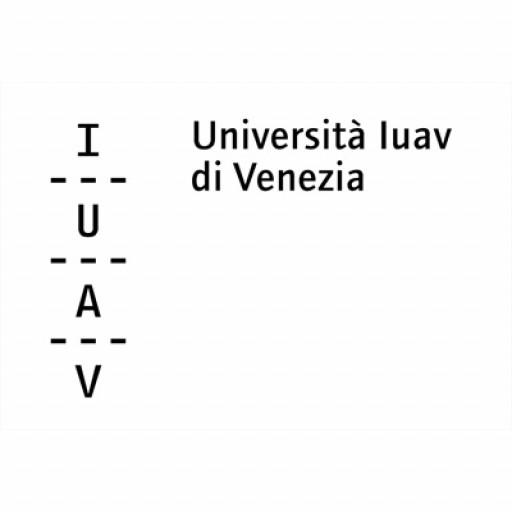Photos of university / #uwmadison
Environmental Engineering at the University of Wisconsin-Madison is a comprehensive undergraduate program designed to prepare students to address the complex environmental challenges of our time. The curriculum combines principles from engineering, science, and public policy to equip graduates with the skills necessary to develop innovative solutions for water, air, and soil contamination, waste management, and sustainable development. Students will engage in a rigorous course of study that includes core topics such as fluid mechanics, chemistry, environmental systems analysis, and environmental microbiology. In addition to technical coursework, the program emphasizes practical experience through laboratory work, field projects, and internships, enabling students to apply theoretical knowledge to real-world problems. The program encourages interdisciplinary collaboration, integrating concepts from civil, chemical, and environmental engineering to foster a holistic understanding of environmental issues. Students also gain proficiency in environmental modeling, risk assessment, and environmental policy frameworks, preparing them for careers in consulting, government, industry, or academia. The University of Wisconsin-Madison provides state-of-the-art laboratories, research centers, and partnerships with industry leaders, giving students access to cutting-edge technology and research opportunities. Graduates of the program are well-equipped to contribute to sustainable development initiatives, environmental conservation efforts, and regulatory compliance efforts worldwide. The program also prepares students for postgraduate studies in environmental engineering or related fields, fostering lifelong learning and leadership in environmental science and engineering. With a strong foundation in technical expertise, environmental ethics, and communication skills, students are empowered to become responsible engineers committed to making a positive impact on the environment and society.
Environmental Engineering at the University of Wisconsin-Madison offers students a comprehensive education aimed at developing innovative solutions to environmental challenges. The program combines the fundamentals of engineering, science, and environmental policy to prepare graduates for careers in addressing issues such as water and air pollution, waste management, and sustainable development. Students will engage in rigorous coursework covering fluid mechanics, chemistry, environmental systems, and environmental infrastructure. The curriculum emphasizes the application of engineering principles to real-world problems through project-based learning, laboratory work, and internships. Students gain hands-on experience with state-of-the-art facilities and research laboratories, fostering skills in environmental modeling, data analysis, and sustainable design. The program encourages interdisciplinary collaboration, partnering with departments such as Civil and Environmental Engineering, Chemistry, and Atmospheric and Oceanic Sciences to provide a holistic perspective on environmental issues. Graduates of the program are well-equipped to pursue careers in consulting, government agencies, industry, and research institutions, contributing to the development of sustainable solutions that protect public health and the environment. The University of Wisconsin-Madison also offers opportunities for undergraduate research, student leadership, and community engagement, enriching the educational experience and preparing students for leadership roles in environmental engineering. With a strong focus on both technical expertise and ethical responsibility, the Environmental Engineering program aims to foster professionals committed to sustainable progress and environmental stewardship.
The Bachelor of Science in Environmental Engineering at the University of Wisconsin-Madison requires students to complete a comprehensive set of coursework, research, and practical experiences designed to prepare graduates for careers in environmental protection, sustainable development, and resource management. The program’s curriculum encompasses foundational courses in mathematics, chemistry, physics, and biology to establish a solid scientific base. Students then proceed to specialized classes focusing on environmental systems, water and wastewater treatment, air quality management, environmental chemistry, and environmental systems modeling. In addition to technical coursework, students are encouraged to develop skills in project management, environmental policy, and economic analysis through relevant elective classes.
Practical requirements include participation in laboratory exercises, design projects, and fieldwork, providing hands-on experience with real-world environmental engineering challenges. The program emphasizes interdisciplinary learning, often collaborating with other departments such as Civil and Environmental Engineering, Urban Planning, and Biological Systems Engineering. To fulfill degree requirements, students must complete approximately 120-130 semester credits, including general education requisites in humanities and social sciences to foster well-rounded understanding of societal impacts.
Capstone projects are integral, requiring students to design, evaluate, and present comprehensive solutions to environmental problems, often working in teams. Internships or cooperative education experiences are highly encouraged to gain industry experience prior to graduation. The program also prepares students for graduate study or professional licensure as engineers upon meeting the necessary prerequisites. Throughout their studies, students are expected to develop competencies in sustainability practices, environmental regulations, and innovative technological solutions. By graduation, students will possess the knowledge, skills, and ethical grounding necessary to contribute effectively to the field of environmental engineering.
The University of Wisconsin - Madison offers various financing options to support students enrolled in the Environmental Engineering program. Undergraduate students can explore multiple sources of financial aid, including need-based grants, scholarships, and work-study opportunities. The university's Office of Student Financial Aid provides comprehensive information and assistance to help students navigate application procedures for federal and state aid programs, such as the Free Application for Federal Student Aid (FAFSA). Demonstrating financial need through the FAFSA can qualify students for grants like the Federal Pell Grant, which does not require repayment, as well as federal work-study programs that allow students to work part-time on campus or in related fields to offset educational costs. Additionally, numerous scholarships are available specifically for students pursuing environmental-related disciplines, with eligibility criteria based on academic achievement, leadership, and community involvement. The university also offers loan programs, including federal Direct Loans, which can be an essential component of a student’s financial plan, with fixed interest rates and flexible repayment options. Private financial aid options may also be available through external organizations and foundations supporting environmental initiatives and education. For international students, financial support may be more limited, and they are encouraged to seek scholarships designated for international students or engage with departmental funding opportunities. The university frequently updates its financial aid policies and introduces new scholarship opportunities, so prospective and current students should consult the official financial aid website and the Environmental Engineering department for the most current information. Planning finances early and submitting all required documentation on time is critical for maximizing aid eligibility. Overall, the University of Wisconsin - Madison strives to make environmental engineering education accessible through a diverse array of financial aid resources, ensuring that students can focus on their academic and professional development without undue financial burden.
The University of Wisconsin - Madison offers a comprehensive Environmental Engineering program designed to prepare students for careers addressing complex environmental challenges. This undergraduate degree program typically emphasizes the principles of engineering, science, and technology necessary to develop sustainable solutions for water, air, soil, and waste management. Students are introduced to core subjects such as fluid mechanics, thermodynamics, environmental chemistry, and engineering design, alongside specialized courses focusing on water and wastewater treatment, air pollution control, environmental systems analysis, and remediation technologies.
The program aims to equip students with hands-on experience through laboratory work, field projects, and internships, fostering practical skills alongside theoretical knowledge. Emphasis is placed on interdisciplinary approaches, integrating biological, chemical, and physical sciences to understand environmental processes. Students are encouraged to develop critical thinking, problem-solving abilities, and an understanding of societal impacts, preparing them for careers in industry, government agencies, consulting firms, or pursuing advanced studies.
The faculty involved in the Environmental Engineering program at the University of Wisconsin - Madison are engaged in cutting-edge research in areas such as water resource management, sustainable infrastructure, and pollution control. The university provides state-of-the-art laboratories and research facilities to support student projects and research initiatives. The program also aligns with federal and state environmental policies and standards, ensuring graduates are well-versed in regulatory compliance and environmental ethics.
Graduates of the program are prepared for roles such as environmental engineer, water resource engineer, environmental consultant, or graduate research positions. Many students participate in experiential learning opportunities, including co-op programs, internships, and collaborative projects with industry and government agencies, which are integral parts of the curriculum. This comprehensive approach ensures that students are well-equipped to contribute effectively to environmental protection and sustainable development efforts across various sectors.
The University of Wisconsin - Madison also emphasizes sustainability and innovation within its curriculum and campus operations, providing students with the opportunity to engage in projects that promote environmental stewardship and community health. Overall, the Environmental Engineering program at the University of Wisconsin - Madison is designed to cultivate environmentally conscious, technically proficient engineers capable of tackling global environmental issues through innovative approaches and sustainable solutions.







